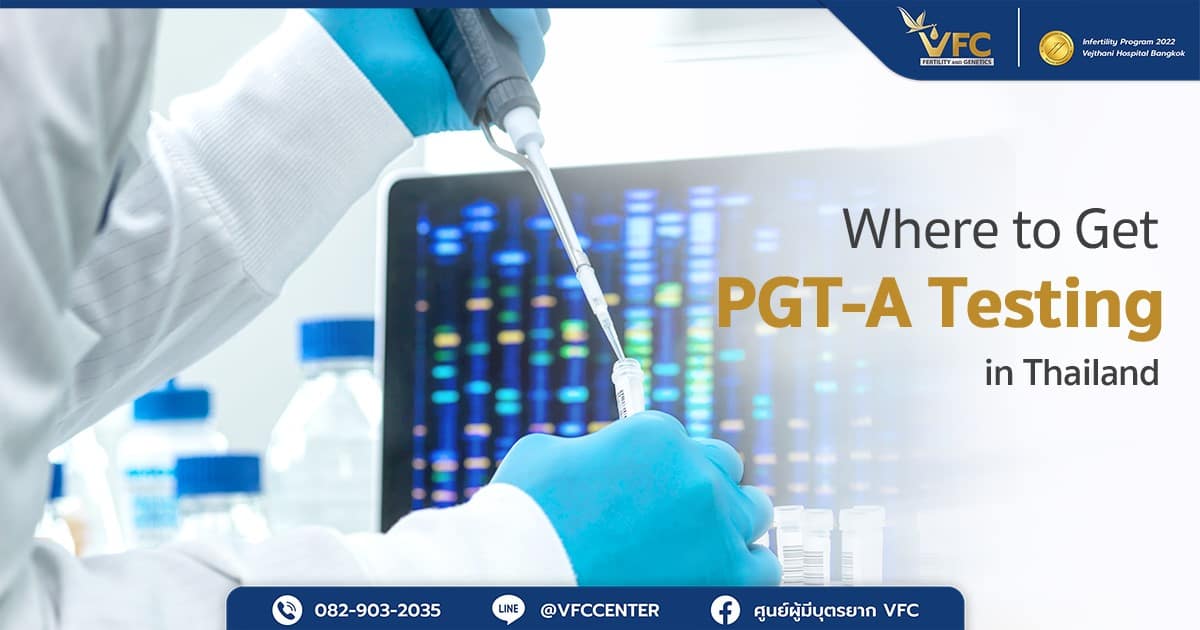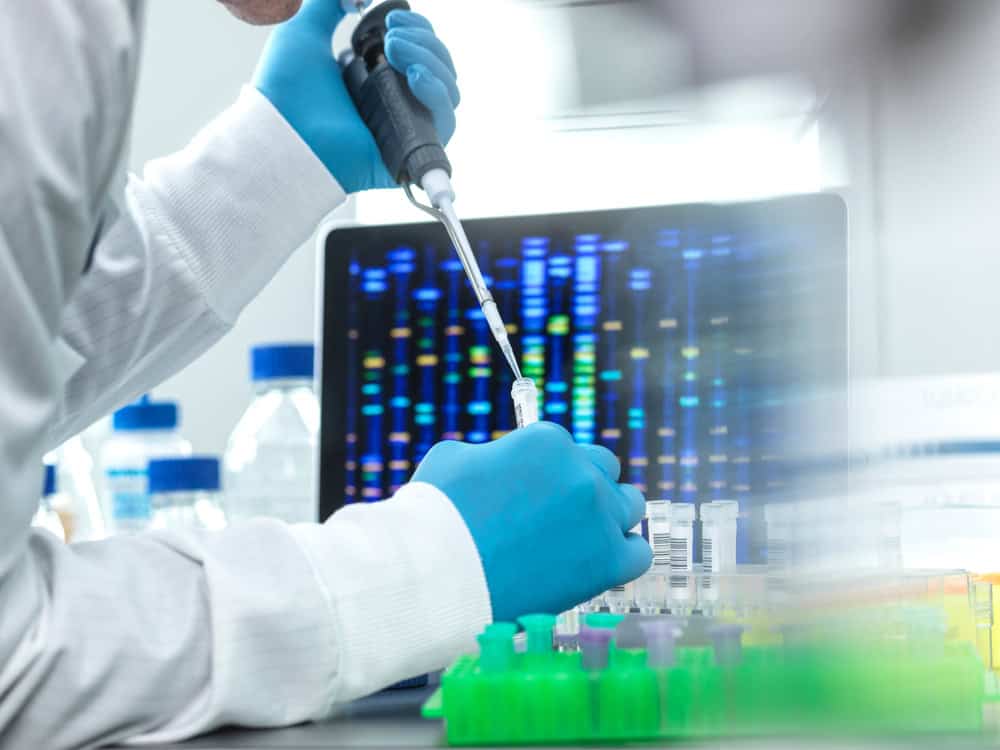
Preimplantation genetic testing (PGT) is becoming more common, with a greater number of people turning to IVF programs to help them conceive. We’ll explain what IVF genetic testing entails, how it reduces risks, and what the test results will mean for your chances of conceiving.
IVF genetic testing examines embryos during an IVF cycle before the possible transfer to a woman’s uterus. The test is typically carried out in a PGT clinic by specialized laboratory technicians. The test looks for a range of genetic problems that may lead to implantation failure, miscarriage, or congenital disabilities if the embryo is carried to term.
The genetic defects detected during testing include Down’s syndrome, sickle cell anemia, and the rearrangement of genes, which can be responsible for pregnancy loss and inherited diseases and conditions. There are three types of PGT:
- Preimplantation genetic testing for aneuploidy (PGT-A)
- Preimplantation genetic testing for monogenic/single-gene diseases (PGT-M)
- Preimplantation genetic testing for structural chromosome rearrangements (PGT-SR)
IVF genetic testing is performed for two different reasons. The first is to prevent the implantation of embryos with genetic abnormalities that often cause a failed implantation or miscarriage. Secondly, the tests identify embryos with genetic defects that can lead to a child having a genetic disorder causing death or inheritable diseases, such as muscular dystrophy.
The three types of PGT replace the previous testing that included preimplantation genetic screening (PGS) and preimplantation genetic diagnosis (PGD). However, the new tests are performed in the same manner.

PGT-A
PGT-A testing in Thailand analyzes the embryo to determine its chromosome number. Normal people have 46 chromosomes, 23 of which they inherit from each parent. An embryo missing a chromosome or having an extra one is called aneuploidy. A missing chromosome is called monosomy, and trisomy denotes an extra chromosome.
Various types of trisomy can result in live births, including Down’s syndrome (trisomy 21), Patau syndrome (trisomy 13), and Edwards syndrome (trisomy 18). However, a child can only live with one type of monosomy, which is called Turner syndrome.
PGT-M
Preimplantation genetic testing for a monogenic disease (PGT-M) is used to look for particular gene mutations one or both parents are known to carry and prevent the transfer of the affected embryo into the uterus. PGT-M tests for known disorders, including:
- Huntington’s disease
- Muscular dystrophy
- Cystic fibrosis
- Sickle cell anemia
- BRCA1 & BRCA2 mutations
- Tay-Sachs syndrome
- Fragile-X syndrome
BRCA1 and BRCA2 mutations significantly increase a woman’s risk of breast and ovarian cancer.
PGT-SR
PGT-SR analyzes embryos of couples known to have a chromosomal structural rearrangement. These mutations include several classifications, like deletions, inversions, translocations, and duplications. PGT-SR looks for several mutations, including:
- Robertsonian translocations
- Reciprocal translocations
- Nonreciprocal translocations
Mechanics of IVF Genetic Testing
All three forms of preimplantation genetic testing use the same procedure. The first step of the procedure is an embryo biopsy. In IVF, developed eggs are harvested from the ovaries. The eggs are fertilized with sperm in a laboratory.
Fertilized eggs are called zygotes, and they’re kept in a formulated culture medium that supports their growth. Between five to six days after fertilization, the embryos develop into blastocytes. When they’ve reached the blastocyte stage, they can be selected for biopsy. A few cells of the blastocytes are gently removed and sent to the PGT clinic for analysis. IVF genetic testing is also commonly performed on embryos that will be frozen for future use.

What is the Most Common Type of IVF Genetic Testing?
The most common type of genetic testing performed before the embryo is transferred to the womb is called preimplantation genetic testing for aneuploidy, or PGT-A. In Thailand, this test screens for aneuploidy, or the presence of an extra or missing chromosome, which can lead to problems with implantation or miscarriage.
PGT-A testing helps improve an IVF success rate by ensuring the embryo selected for transfer has the correct number of chromosomes. This reduces the risk of a failed IVF cycle and miscarriage. It’s a valuable tool in IVF to improve the chances of a successful pregnancy by ensuring the embryo selected for implantation is genetically healthy.
What is the PGT-A Testing Process?
The PGT-A testing process in Thailand involves taking a small biopsy, or a sample of a few cells, from the embryo and analyzing the DNA to determine if the embryo has the correct number of chromosomes. The detailed process is as follows:
- Embryo development: Embryos are created through IVF or ICSI and are allowed to develop in the lab for a few days until they reach the blastocyst stage, typically day 5 or 6 after fertilization.
- Embryo biopsy: A small sample of cells, usually 5 to 10, is removed from the outer layer of the embryo.
- Genetic testing: The cells are sent to a laboratory for genetic analysis, typically using next-generation sequencing to determine the number of chromosomes.
- Embryo selection: Embryos with a normal chromosome count are identified as candidates for transfer.
- Frozen embryo transfer: Embryos are frozen until the results are available; only those with a normal chromosome count are thawed and transferred to the uterus.
What are the PGT-A Testing Results?
The PGT-A genetic testing reveals whether an embryo has the normal number of chromosomes (euploid) and is considered suitable for transfer, or an abnormal number (aneuploid), which is not suitable for transfer. The PGT-A test result can also be mosaic, where some cells in the embryo have the normal number of chromosomes, while others have an abnormal number. Some cases may also have no result, where the test is inconclusive due to insufficient biopsy or technical issues, which means the embryo may need to be retested.
Who is a Candidate for IVF Genetic Testing?
Any embryos can have IVF genetic testing performed at the direction of the patient or couple. However, doctors recommend PGT in specific cases. These cases include:
- Women over the age of 35 who are at increased risk of producing embryos with genetic abnormalities.
- Women with a medical history of recurring miscarriages due to chromosomal abnormalities.
- Couples who are at risk of passing an inherited genetic disease to their child because of their medical history.
- Women who have had several failed IVF/ICSI cycles.
People undergoing IVF are encouraged to have their embryos tested. Tests like PGT-A increase the success rate of implantation and a healthy pregnancy. PGT-A genetic testing can also reduce the amount and costs of repeat IVF cycles and the risk of a failed implantation or miscarriage.
Visit the V-Fertility Center at Vejthani Hospital
For many couples having problems conceiving, embarking on an IVF program represents their last hope of having a biological child. The V-Fertility Center offers a wide range of infertility treatments that can provide you with the best chance of conceiving naturally. V-Fertility Center in Bangkok offers a comprehensive IVF program that includes all three types of embryonic genetic testing PGT-A, PGT-M, and PGT-SR.
Make an appointment at the V Fertility Center today.
Written by Dr.Sorramon Songveeratham

OBSTETRICS AND GYNAECOLOGY-REPRODUCTIVE MEDICINE





No Comments
Sorry, the comment form is closed at this time.